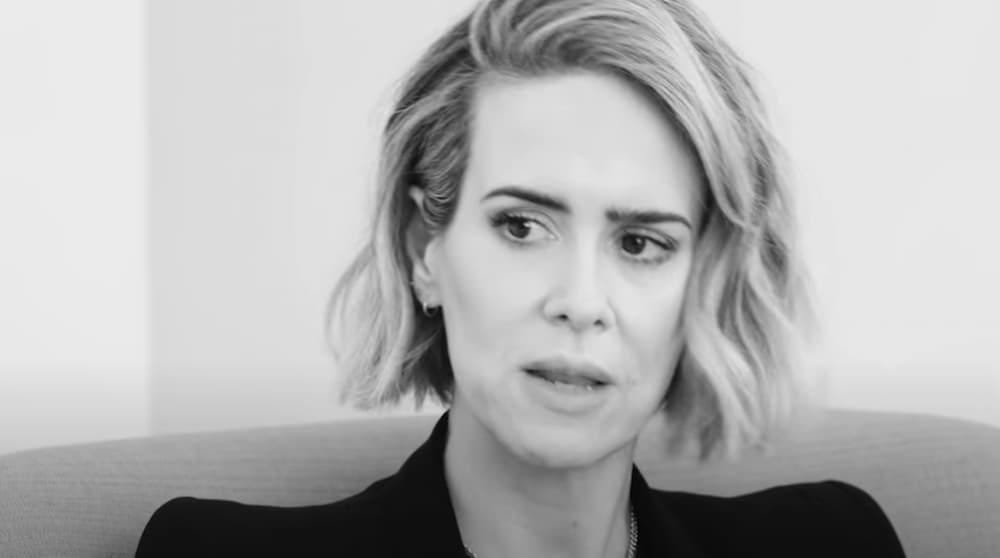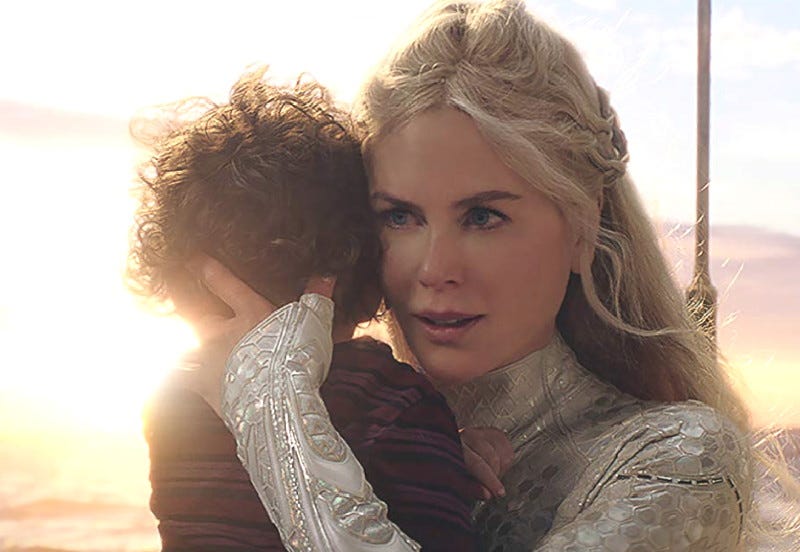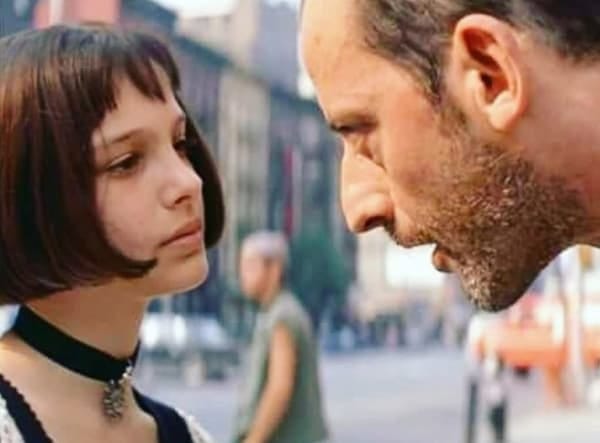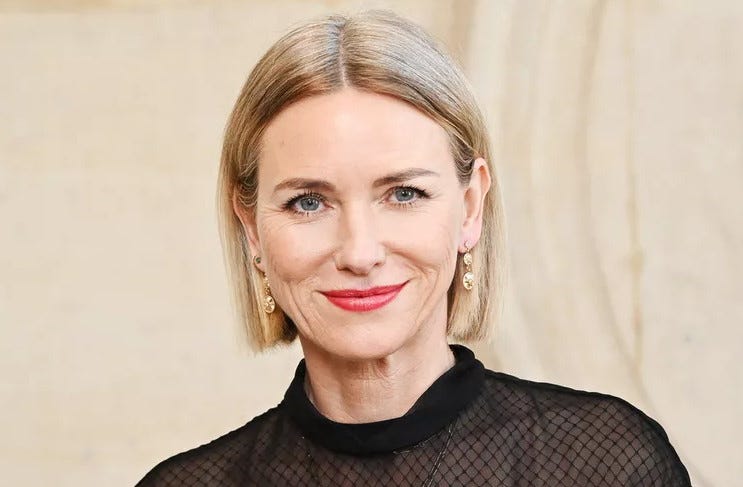“You want to feel that you matter and that you count, and when you’re constantly being told ‘No no no’ and that your work isn’t speaking to anyone, or nothing you’re doing is making a difference to anyone, and you're not being chosen, it's hard to not personalize that; it's very hard to continue to strive." – Actor, producer Sarah Paulson
Whether it’s a response from an audience, a ‘no’ at an audition, a turndown from a publisher or gallery owner, criticism and rejection are part of their creative life for most actors and other artists.
What do artists, and psychologists say about this common experience of rejection – and how to better deal with it?
“You have to develop a thick skin, but you can’t have a thick skin in your work. So it’s that constant push-pull.” – Nicole Kidman
“Initial reactions could be false predictors of your work’s ultimate legacy.” – Natalie Portman
“Often, when you have this sort of visceral reaction to being misunderstood or rejected, it’s a sign that you are carrying around some unhealed emotional trauma.” – Psychotherapist Mihaela Ivan Holtz
~~~~
Sarah Paulson interview: Off Camera Show with Sam Jones Jun 1, 2018.
…
Psychotherapist Mihaela Ivan Holtz helps creative people in TV/Film, performing and fine arts.
She writes in one of her articles on her site :
“Rejection lurks around every corner in the arts world.
“In fact, for you, the creative or the performer, knowing how to tolerate, be with, and work with rejection is almost a career requirement!
“Even if rejection hurts, you can learn how to turn in your favor. Rejection can actually guide you to find your true place in the world and in your art.”
She also finds:
“An unconscious fear of rejection can hold you back from finding and expressing your creative energy.
“It can interfere with you connecting with your talents and skills to transform your inspiration into your art.
“You can’t seem to find the courage to take what you create into the world.
“Creative blocks can indeed cover an unconscious fear of rejection.”
She explains:
“Here are four clues that you’re being sabotaged by your own unconscious fears:
You feel like something may be wrong with you.
You find yourself trying to please others much of the time.
You feel lost and you can’t trust yourself.
Despite having big dreams, you play small.
Continued in her article (on her site):
What If Your Fear of Rejection Was the Key to Your Creative Potential?
In another article, she writes about how deeply artists may react to rejection scenarios “that you may go through time and time again:
Imagine you’re at an audition, pitching your screenplay, or acting out a scene. You feel in touch with who you are, a little scared, perhaps, but also excited for the new possibilities.
But then, you hear a comment, or get an “I’m not interested look.”
Or, maybe you just imagine “they aren’t impressed.”
Suddenly, you’re in a very different emotional place. Instead of gentle butterflies, you begin to feel all warm and dizzy…
She continues:
Why might this kind of rejection cut so deeply?
After all, you’re an artist and you know that you constantly have to contend with how people receive and respond to your art.
Often, when you have this sort of visceral reaction to being misunderstood or rejected, it’s a sign that you are carrying around some unhealed emotional trauma.
Some past wounds related to being seen and validated have been triggered and you can’t just decide ‘I won’t let other people’s unfavorable reactions get to me.’
When those old traumas are activated, you lose control of how you feel and how you react. You’re swept into a spiral of emotion. You feel like you can’t stop or pull yourself back out.
There’s good news here: it is possible to work with your reactions to others and maintain your artistic integrity so you can continue to make your art and build your career.
Continued in her article The Artist’s Dilemma: How To Stay True to Your Art and Connect with Your Audience.
~~~~
Nicole Kidman has commented: “I was a highly sensitive child…Most actors are highly sensitive people.
“But you have this incredible scrutiny. You have to develop a thick skin, but you can’t have a thick skin in your work. So it’s that constant push-pull…”
Being creative may increase our vulnerability to rejection – especially for those of us who have the trait of high sensitivity (sensory processing sensitivity).
And rejection can erode our self-esteem and confidence.
Julie Bjelland, LMFT is a psychotherapist and author specializing in the trait of high sensitivity, and a highly sensitive person herself. She notes not having confidence can show up in the following ways:
not exploring your needs
not moving forward if something isn’t perfect or being stuck in fear of failure
not believing you are worthy or good enough
not living a life that honors and aligns with your values
Listen to excerpt of her podcast “Episode 117: Confidence: Let’s Explore Where it Comes From and How to Get it” –
How does confidence affect our lives and how can we feel it more?
This is a short excerpt from a podcast episode with Julie Bjelland and Willow McIntosh on the topic of confidence. They are addressing highly sensitive people, but confidence is an issue for so many - even most - creative people. From the Show Notes for the original episode:
Hear many more podcasts, and learn about her books, courses, articles, and other resources for helping sensitive people thrive, even with strong or overwhelming emotions at JulieBjelland.com
~~~
“Initial reactions could be false predictors of your work’s ultimate legacy.” – Natalie Portman
–More from her Harvard Commencement Speech :
“In my professional life, it also took me time to find my own reasons for doing my work.
The first film I was in came out in 1994. Again, appallingly, the year most of you were born.
I was 13 years old upon the film’s release and I can still quote what the New York Times said about me verbatim “Ms Portman poses better than she acts.”
The film had universally tepid critic response and went on to bomb commercially.
That film was called The Professional, or Leon in Europe.”
[Wikipedia says “The Professional received positive reviews from critics” and other sources note the film grossed $45 to 46 million worldwide against a $16 million budget. Photo with Jean Reno.]
And today, 20 years and 35 films later, it is still the film people approach me about the most to tell me how much they loved it, how much it moved them, how it’s their favorite movie.
I feel lucky that my first experience of releasing a film was initially such a disaster by all standard measures.
I learned early that my meaning had to be from the experience of making the film and the possibility of connecting with individuals rather than the foremost trophies in my industry: financial and critical success.
And also those initial reactions could be false predictors of your work’s ultimate legacy.
I started choosing only jobs I was passionate about and from which I knew I could glean meaningful experiences. This thoroughly confused everyone around me: agents, producers, and audiences alike.”
Full Transcript: Natalie Portman Harvard Commencement Speech 2015.
Full video: Natalie Portman Harvard Commencement Speech By Harvard University
~~~~~
Our brains and rejection
In an article on this topic, psychologist Guy Winch notes:
“Our brain prioritizes rejection experiences because we are social animals who live in ‘tribes’…We all have a fundamental need to belong to a group.
“When we get rejected, this need becomes destabilized and the disconnection we feel adds to our emotional pain.”
Other ways rejection can impact us:
“Rejection creates surges of anger and aggression” and even “temporarily lowers our IQ.”
From his Psychology Today article 10 Surprising Facts About Rejection July 3, 2013.
Guy Winch Ph.D. is author of Emotional First Aid: Healing Rejection, Guilt, Failure, and Other Everyday Hurts.
~~~~~~~~~
More perspectives on rejection:
Naomi Watts recalls being a young and struggling actor, and her audition, which led to her role in Mulholland Drive:
“The first time I met David Lynch, I just remember being struck by his voice, his smile, and his all-encompassing energy.
“I’d spent 10 years auditioning under the radar, dealing with rejection over and over again, and he was just beaming with light, which relaxed me right away.
“It was like for the first time, somebody was interested in ‘seeing’ me.”
(From post with many other comments: Creative Inspiration: Books with Artist Quotes.)
But after completing the film, she found auditioning was still challenging:
“Mulholland Drive (2001) was in the can at that point…So my agents were continuing to send me out for pilots. I had no money, no health insurance, and I was going on all these auditions for things I didn’t believe in but that I was desperate for because I needed the work.
“As a result, I was shaky and intense and nervous and laughing or smiling too much, and I was making people uncomfortable. It was awkward…
“In retrospect, all those disappointments were the perfect thing because if I’d gotten one of those parts I’d auditioned for, I would probably still be on some TV series today. I wouldn’t have had the freedom to pursue the things I’ve been able to do over the past few years.” [From Interview magazine, Dec/Jan 2004]
From article Artists need to cope with rejection – always part of the arts world.
Also in the article: longer quotes and images of:
Jessica Chastain has talked about being a highly sensitive person. Many artists are.
Even after graduating from Juilliard, she “was auditioning 6 times a day, and not booking a single thing,” an article notes.
“I spent four years in Los Angeles before I ever got a film audition. And in that time I created my own curriculum,” Chastain said.
Hailee Steinfeld on dealing with rejection as a child actor
“From 8 to about 12, I learned very quickly what rejection felt like, what going into a room full of adults expecting a lot out of you felt like.”
“We actors, we’re a fragile bunch, and yet we need to be strong because 90% of our lives is rejection. You have to figure out what really is important.” – Sandra Oh
“I stopped getting hurt by the rejection and took it more as a lesson in growth.” – Daya Vaidya
“It’s a tough journey with a lot of rejection along the way. You have to have a lot of self-belief.” – Naomie Harris
“Rejection is everywhere there is an opportunity for artists.” – Rhode Island School of Design Professor Clara Lieu.
See her video in article: This is Why Artists are Rejected, it's Not What You Think!
~~~~~~~
“I think all great innovations are built on rejections.” – Sculptor Louise Nevelson
“You have to have a thick skin in this business. There’s a lot of rejection. Shaking things off has to be an actor’s middle name!” Madison Lintz
~~~~
How do you respond to rejection?
Unhealthy self-criticism? Or a more healthy kind: learning from the situation, to improve? Questioning whether you are “really” an artist? Being even more fearful that you will fail?
Kristin Neff, PhD notes that the ‘typical way’ of motivating ourselves is harsh self-criticism.
“But research shows this leads to a fear of failure, performance anxiety and other problems” that can hold us back.
See more of her comments in post:
Trusting and Feeling Compassion for Our Creative Self
Many people “have squashed their creativity because of their low self-esteem; many more had it squashed for them, before they could ever know about it.” Psychologist Elaine Aron If we are willing to put our creative work out there – into the world in some way – it will be judged and ranked.
~~~~










